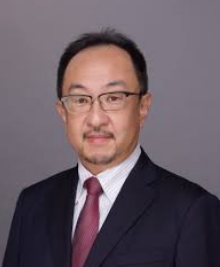
Mitsuyoshi Akiyama
Affiliation:
Professor, Department of Civil and Environmental Engineering, Waseda University, Japan
Title:
Life-cycle performance and management of road networks exposed to multiple hazards
Abstract:
Tsunami-induced disasters pose a significant risk to coastal communities. As climate change leads to sea-level rise, both the frequency and intensity of tsunamis are expected to increase in a nonstationary manner due to the progressive long-term variability in sea levels. Consequently, the reliability of coastal infrastructure systems vulnerable to tsunami hazards will progressively deteriorate over time. It is essential to develop a hazard assessment procedure that integrates tsunamis occurring at random intervals with the ongoing rise in sea levels. This paper introduces a novel framework for assessing tsunami hazards over time, taking into account the nonstationary effects of sea-level rise driven by climate change, based on a non-Poisson stochastic renewal process. Time-variant probabilistic sea-level rise is modeled using various climate models and data from multiple studies. Conditional tsunami hazard curves, which consider sea-level rise, are estimated by conducting tsunami propagation analyses under different scenarios of sea-level rise and by Monte Carlo simulations that account for the uncertainties related to earthquake fault movements. Finally, this paper develops a new concept for time-variant tsunami hazard assessment that considers the nonstationary impacts of sea-level rise, employing a non-Poisson stochastic renewal process. An illustrative example is provided by applying this framework to several municipalities in Kochi Prefecture, Japan, which are at risk from the anticipated Nankai-Tonankai earthquake. The implications of sea-level rise on time-variant tsunami hazards under both Poisson and non-Poisson earthquake occurrence processes are discussed. As an application of the probabilistic tsunami hazard curve including the effect of sea-level rise, the risk curves and expected values associated with disaster waste are estimated.
Personal Profile:
Dr. Mitsuyoshi Akiyama is a Professor of Structural Engineering in the Department of Civil and Environmental Engineering at Waseda University, Tokyo, Japan. He has published papers related to (i) reliability, risk, and resilience of structure and infrastructure under multi-hazard issues (e.g., earthquake and tsunami); (ii) effects of climate change on functionality of civil infrastructure systems; (iii) life-cycle performance assessment of deteriorating concrete structures using experimental evidence, probabilistic analysis, and finite element method; and (iv) advancement of infrastructure's maintenance through integration of machine learning, numerical simulation, reliability analysis, and updating theory. Dr. Akiyama is serving as a Managing Editor of Structure and Infrastructure Engineering (Taylor & Francis) and an Associate Editor of Journal of Bridge Engineering (ASCE). He also serves on the editorial boards of Structural Safety (Elsevier). Dr. Akiyama has been involved in the ASCE Technical Council on Life-Cycle Performance, Safety, Reliability and Risk of Structural System for more than 15 years. He is the Secretary of Executive Committee of the International Association for Bridge Maintenance and Safety (IABMAS) and Executive Committee Member of the International Association for Life Cycle Civil Engineering (IALCCE). He contributes to several activities in International Association for Bridge and Structural Engineering (IABSE) including Chair of Commission 6 -Sustainability. Dr. Akiyama is the President of the non-profit organization (NPO) Engineers-Without-Borders, Japan. Dr. Akiyama is the recipient of several awards including the 2023 Scientific Outstanding Paper in IABSE.

 Website: http://www.icvram2024.org
Website: http://www.icvram2024.org icvram2024@tongji.edu.cn
icvram2024@tongji.edu.cn Address: 1239 Siping Road, Shanghai, P.R. China
Address: 1239 Siping Road, Shanghai, P.R. China
 loading......
loading......